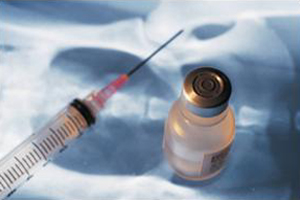Oyster Extract "News" for your good health!

Current News which
discusses available
Blood and Immune products.
CURRENT NEWS-November 21, 2005
Research
An Overview of Vitamins for Healthy Skin
November 21, 2005 (Jennie Kiger, BellaOnline Body Care Editor)
We all have some sort of skin 'issue'... I don't know anyone who doesn't. But what do you do about it? We all know that vitamins are helpful for most problems, but 'good for the skin' isnft very descriptive, or helpful. So, I will try and relate a comprehensive list of vitamins and minerals that are good for the skin... and why, and what, specifically, they are good for.
Vitamin A (aka Retinoids) : Helps to prevent dry, flaky skin; reduces lines and wrinkles; anti-aging properties, helps reduce stretchmarks; helps to treat acne. It can be used topically, as a supplement, or gotten from your diet. It can be found in your diet in such things as eggs, organ meats, whole milk dairy, carrots and broccoli. Unless you suffer from a deficiency, topical use is best when treating the skin, as megadoses are not wise.
B-complex : The B vitamins as a whole help prevent dermatitis and hair loss, treat stress and depression, as well as helping with acne, eczema, and psoriasis. They are absolutely necessary for proper skin (and hair) nutrition, as they form the basis of skin, hair, and nail cells. They can be used topically, taken as supplements, or found in your diet. In the diet, they can be found in such things as bananas, eggs, oatmeal, and rice. Unless you suffer from a deficiency, supplements shouldnft be necessary, but are not likely to be harmful.
B-1 (aka Thiamine) : Helps to rid the body of toxins. It also has antioxidant properties. Recommended dose if taken internally is around 100 mg 3 times daily.
B-2 (aka Riboflavin) : Essential for healthy hair, skin and nails; helps treat acne. Recommended dose if taken internally is around 100 mg 3 times daily.
B-3 (aka Niacin) : Helps with moisture retention in the skin and exfoliation, as well as helping to treat acne. Recommended dose if taken internally is around 200 mg 3 times daily.
B-5 (aka Pantothenic acid) : Helps with moisture retention in the skin and exfoliation; good for sensitive skin. Recommended dose if taken internally is around 100 mg 3 times daily.
B-6 (aka Pyridoxine) : Important for proper function of the immune system and antibody production. Recommended dose if taken internally is around 100 mg 3 times daily.
B-12 (aka Cyancobalamine) : Necessary for rapidly dividing cells (like the skin). This is a must for vegetarians, but not usually necessary for non-vegetarians, as it is mostly found in meat.
Vitamin C (aka L-ascorbic acid) : Needed for the production of collagen; protects from, and helps repair, sun damage; may reduce under-eye circles; aids in healing; inhibits the buildup of melanin (which can cause discolored espotsf); helps with eczema and psoriasis. Vitamin C is a powerful antioxidant which works well both topically and internally, as well as being found in the diet. In the diet, it can be found in such things as citrus fruits, bell peppers, broccoli, cauliflower, and leafy greens. If taken as a supplement, the recommended dose varies everywhere from 500 mg daily, to 1600 mg 3 times daily; the eaveragef seems to be 1000-1500 daily.
Vitamin D : This is a powerful antioxidant and anticarcinogen. However, because the main source of this vitamin naturally is exposure to sunlight, the anticarcinogen properties can get lost amid the other carcinogenic properties of being in the sunlight for long periods of time. You can supplement this topically, but avoid megadoses.
Vitamin E (aka Alpha tocopherol) : Helps to rehydrate the skin; prevents inflammation; protects from sun damage; reduces dry, rough skin; and perhaps most notably, significantly increases the healing rate. Like Vitamin C, this is a powerful antioxidant. It seems to work equally well for general skin care when used topically or taken as a supplement; and, to some extent, can also be found in the diet, in such things as vegetable oils, nuts, seeds, olives, spinach, and asparagus. Avoid megadoses though; while unlikely to do direct damage, it is possible to develop an allergy.
Vitamin K : Helps repair under-eye circles and heal bruises. Best used topically when and where needed.
Alpha-lipoic acid : A powerful antioxidant, that unlike most can penetrate both water and oil, making it more effective for treating skin. It can also greatly increase the efficacy of other supplements, particularly other antioxidants. It can be used topically or taken as a supplement.
Hyaluronic acid : Strong anti-aging and moisturizing properties; keeps the skin looking smoother and younger. It helps to elubricatef the joints for freer movement in addition to its skin-helping properties.
Essential Fatty Acids (esp. Omega-3 and Omega-5) : Helps reduce the production of irritating skin-oil; also helps treat acne, eczema and psoriasis. These can be taken as supplements or found in the diet. In the diet, they can be found in such things as vegetable oils, fish (such as salmon and tuna), and nuts. Fish oil capsules and Evening Primrose capsules are also good sources.
Chromium : Helps to fight acne and reduce infections. Recommended dose when taken internally is around 150 mcg daily.
Zinc : Helps to promote healing; reduces scarring and acne, as well as treating eczema and psoriasis. Also an antioxidant. Recommended dose when taken as a supplement is around 25-30 mg daily.
http://www.bellaonline.com/articles/art37211.asp
